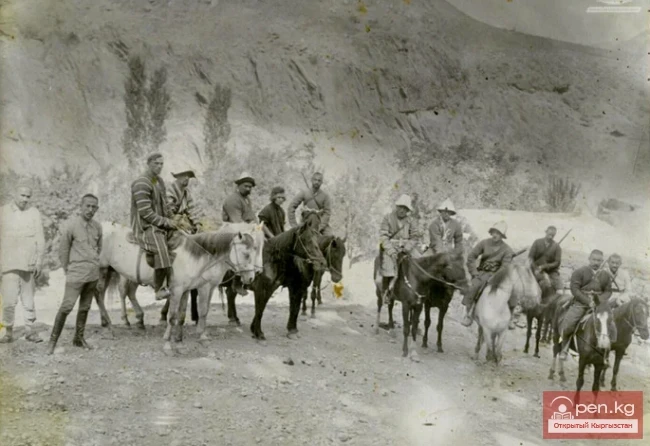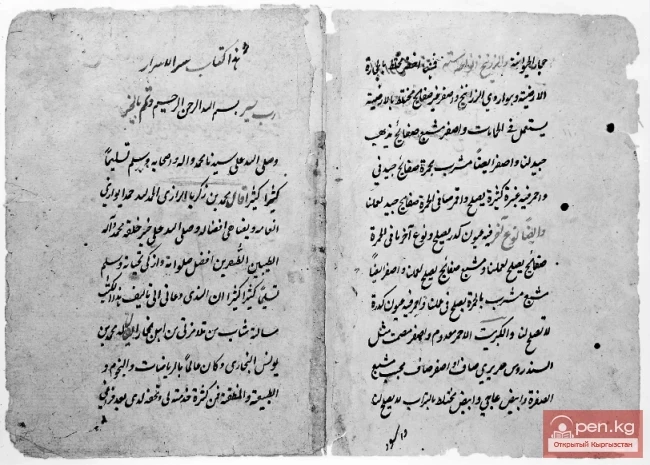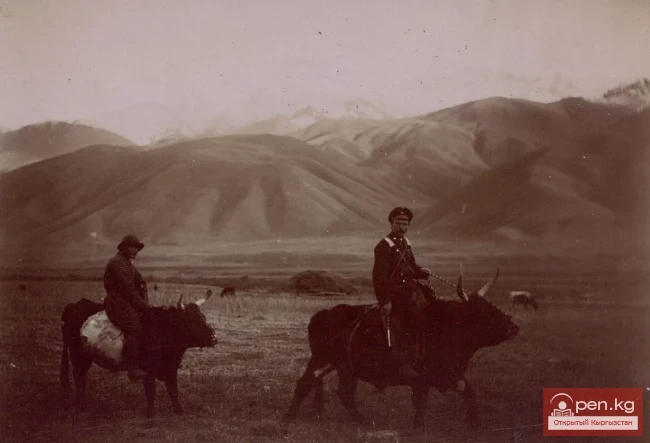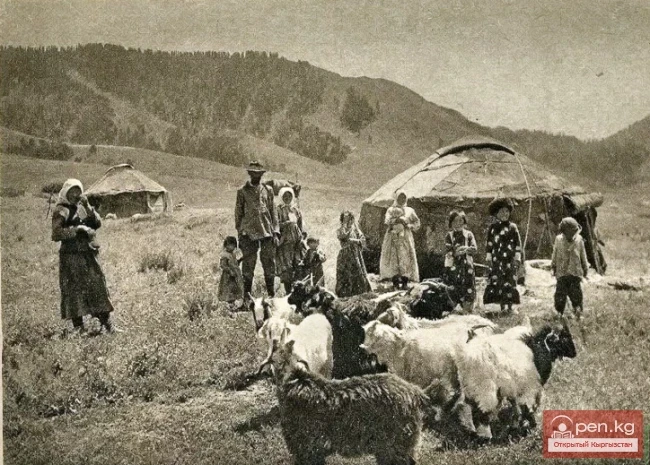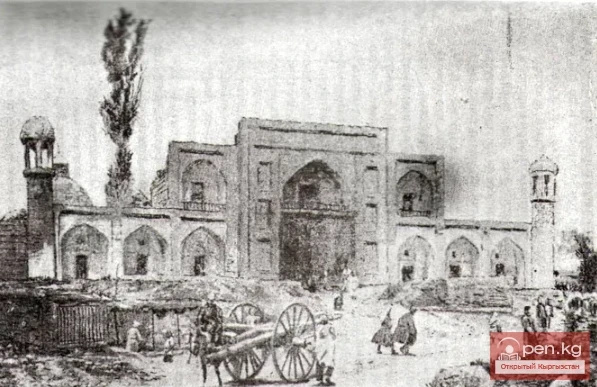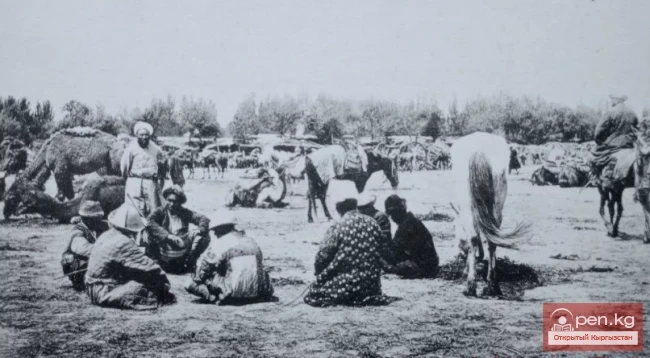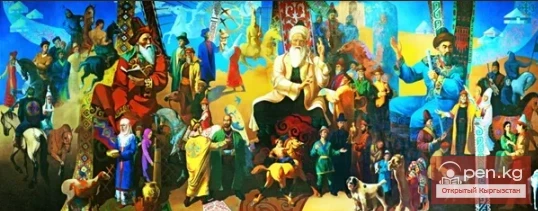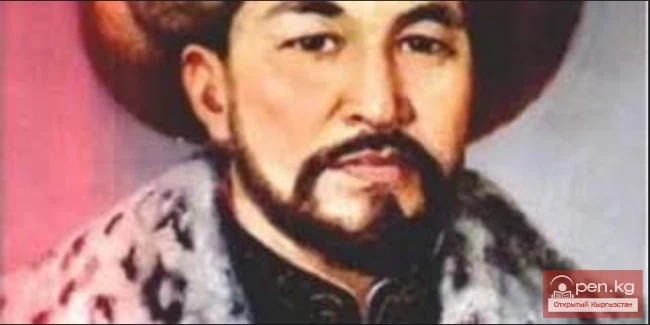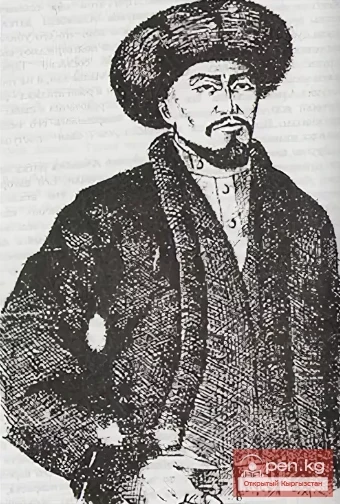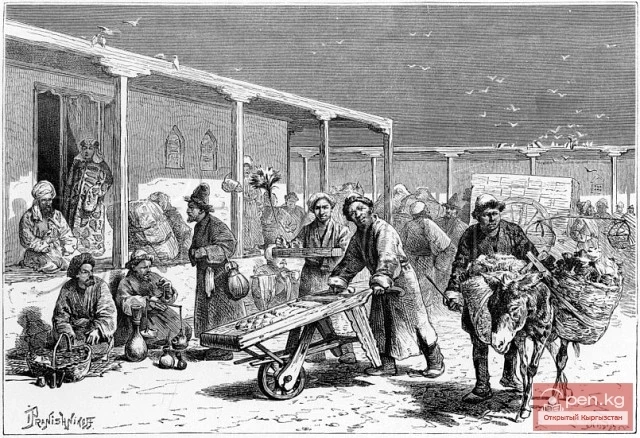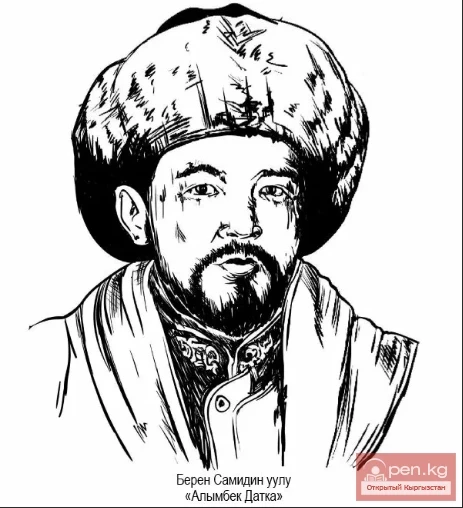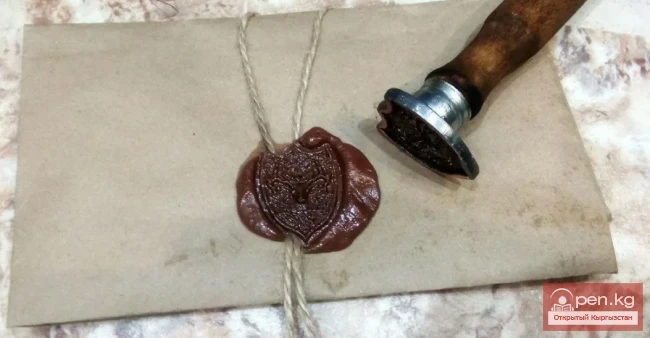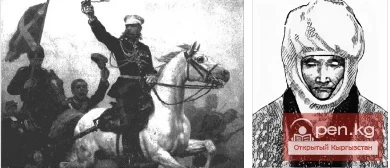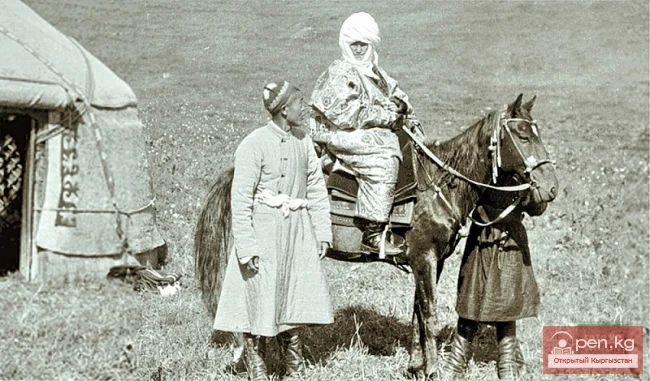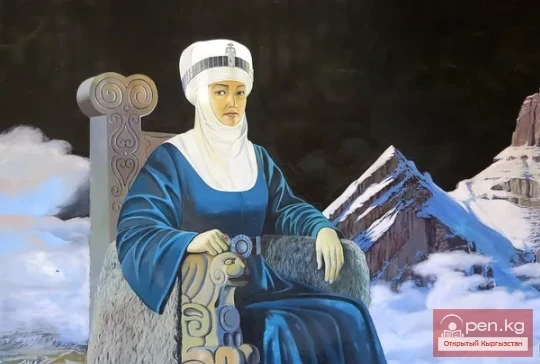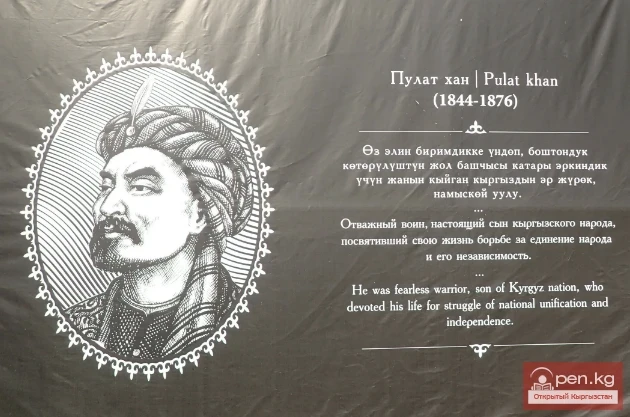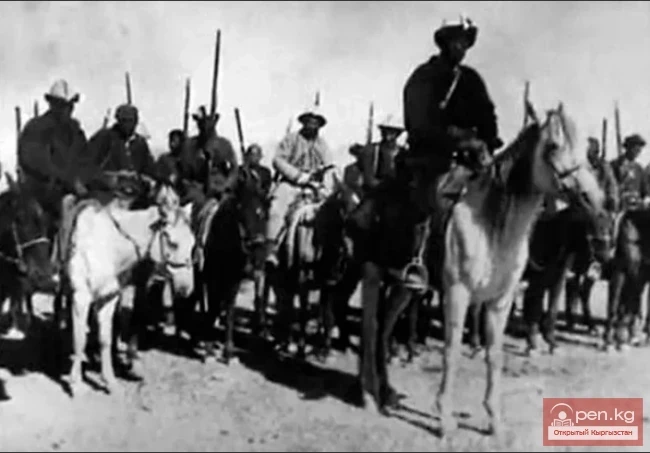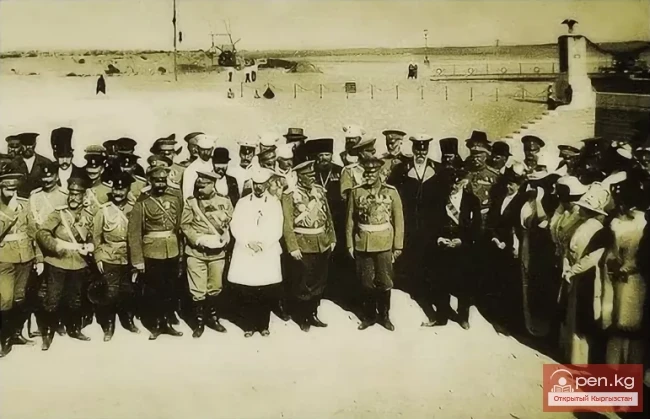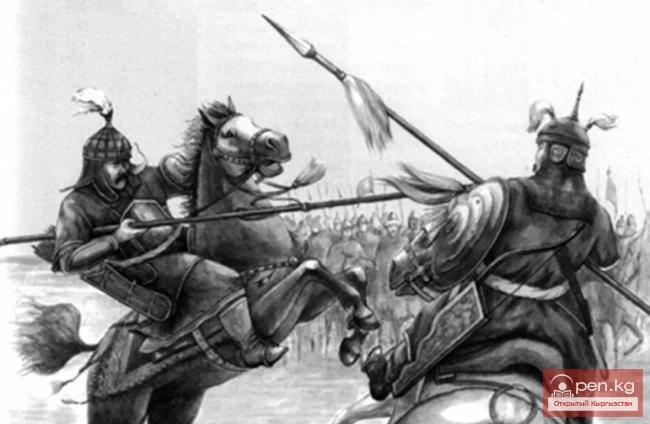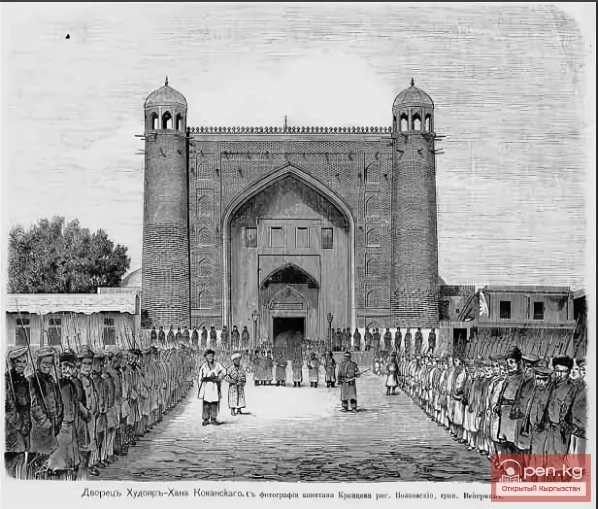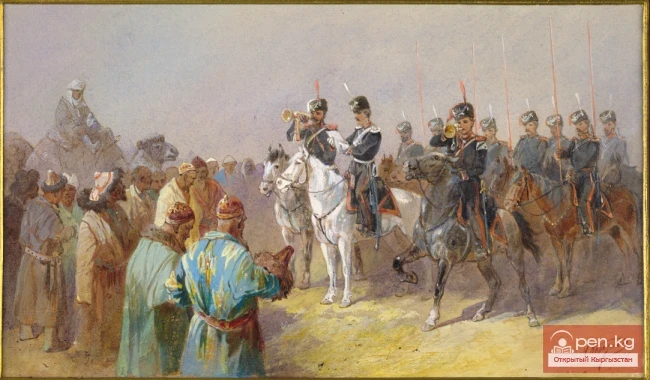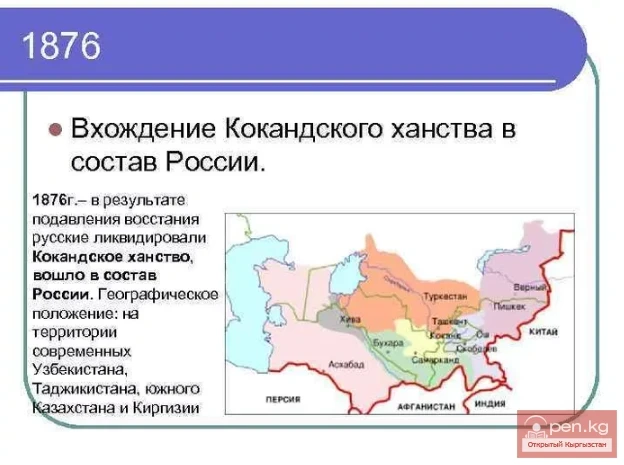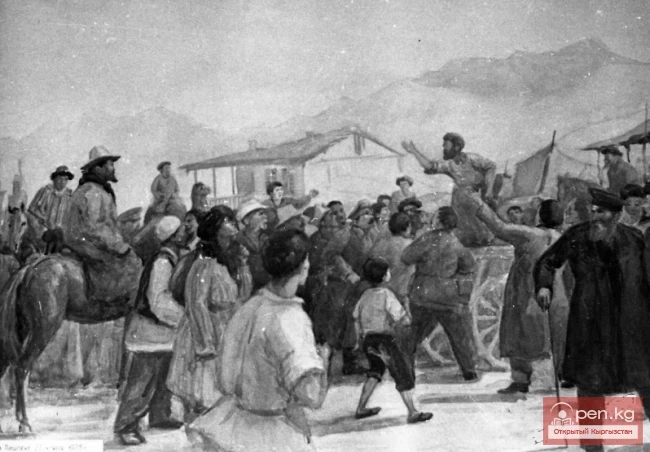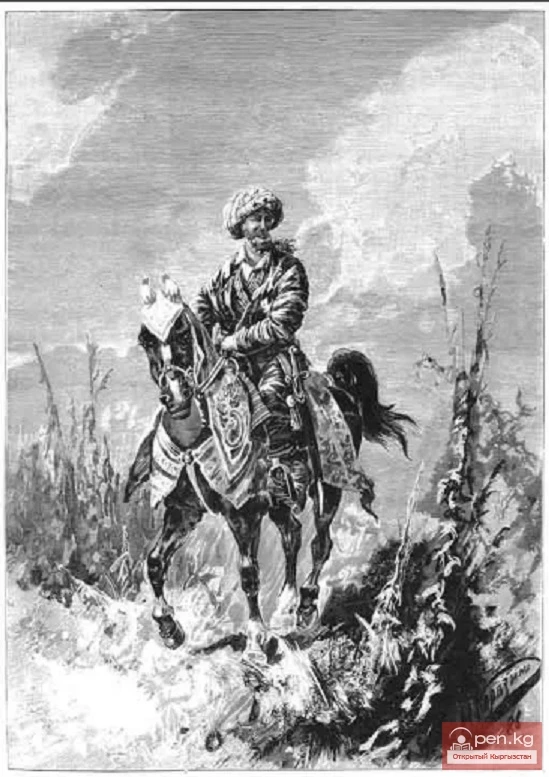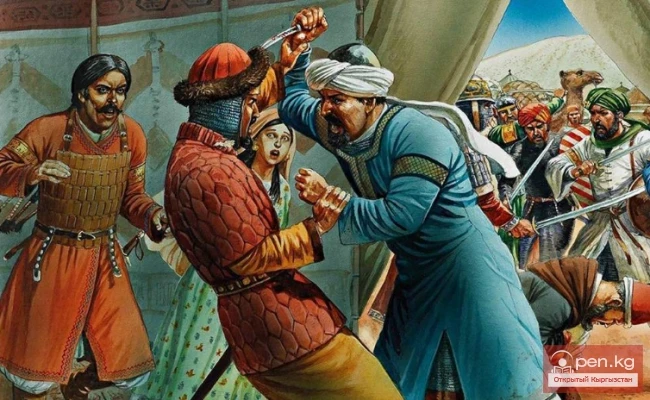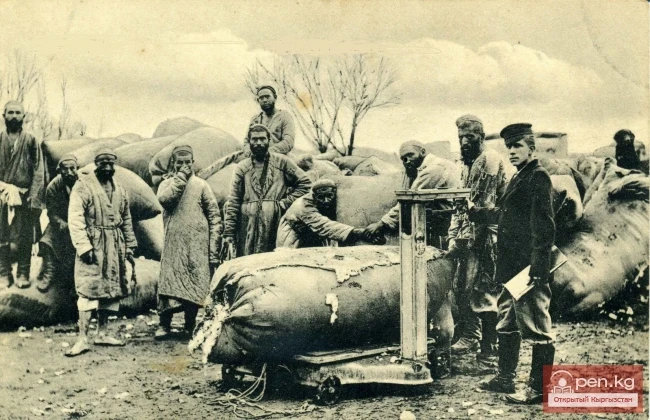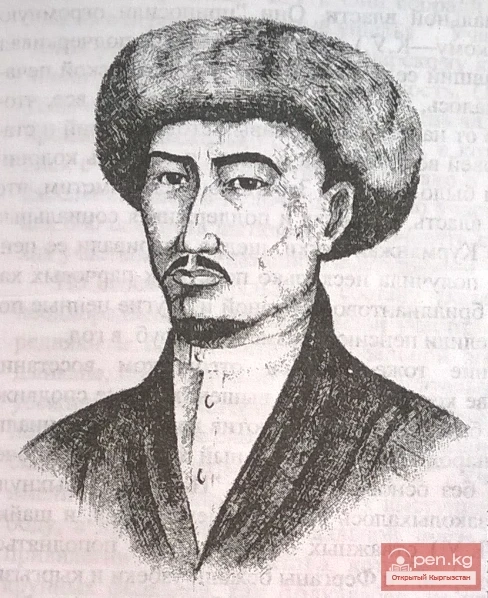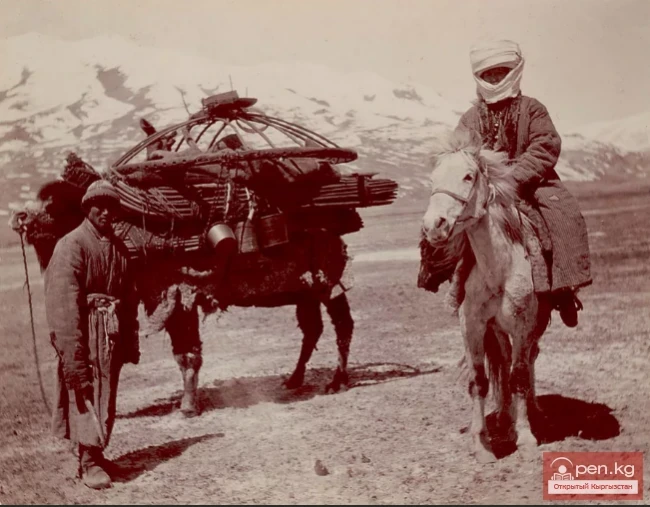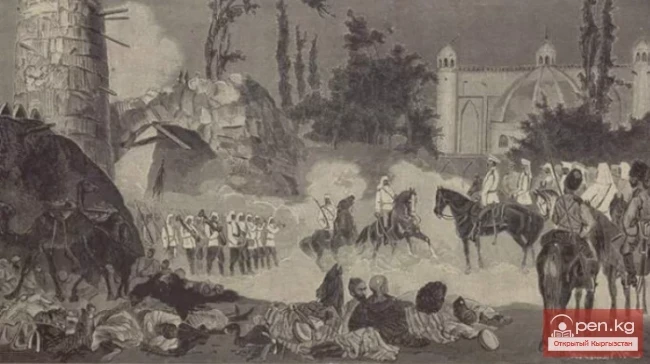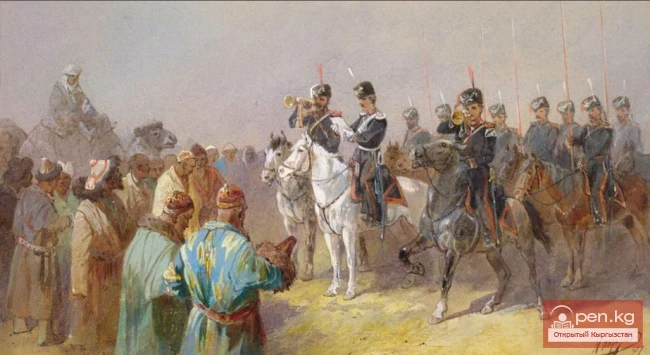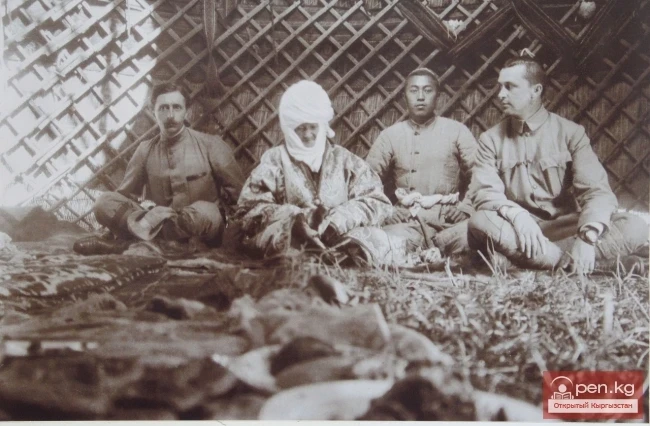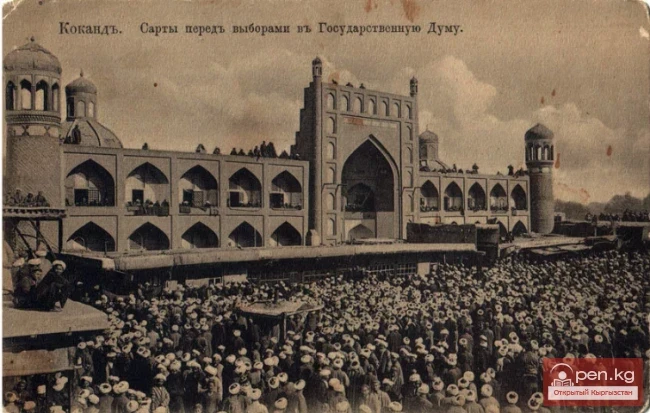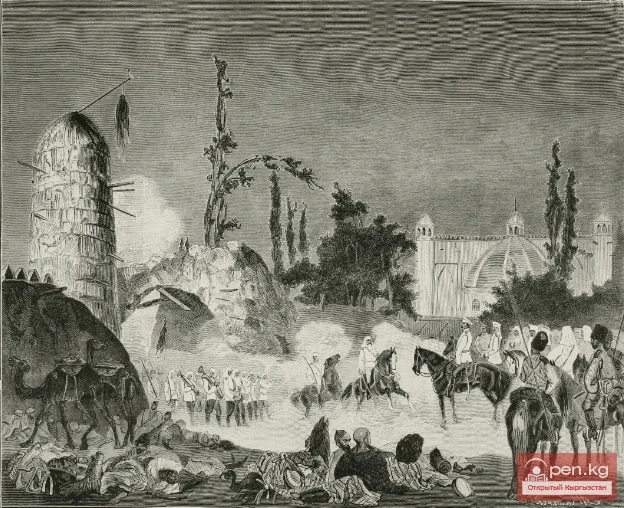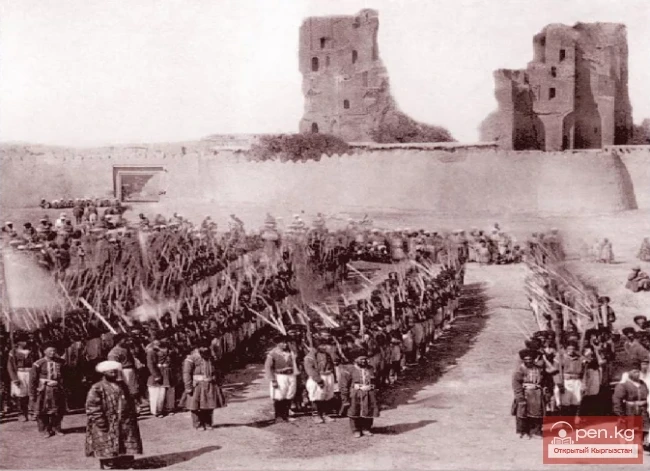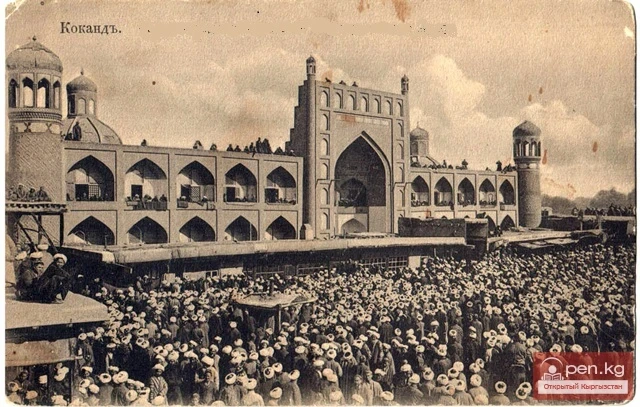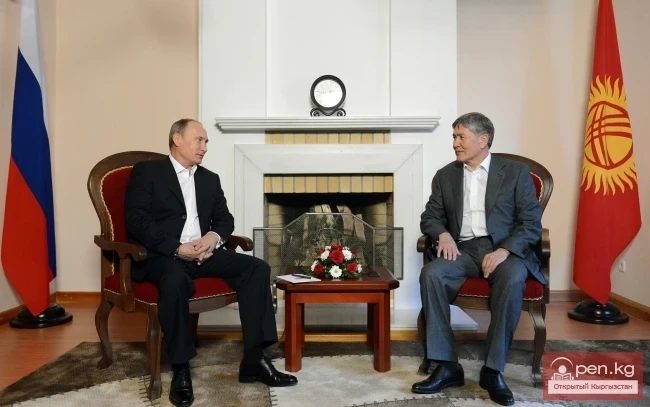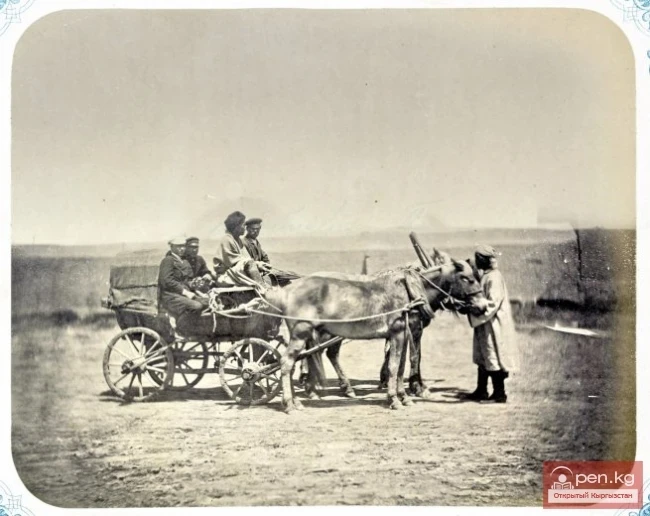Attempts to Circumvent Legislation on the Expansion of Waqf
The conversion of real estate into waqf, as noted above, served as a guarantee of the inviolability of property from encroachments by khans and other feudal lords. This inviolability extended to waqf property in the early years after the annexation of Fergana to Russia. A sufficient illustration of this is the following fact. The land in the Bash-Bulak area, which was owned by Abdullabek as a private owner, where peasants lived with their own buildings and crops, was classified as state property after the annexation of Fergana to Russia and Abdullabek's flight to Afghanistan. There was a special order from the military governor of the Fergana region in 1876 stating that if the "rebels" - opponents of the advance of the tsarist troops into Fergana - did not return, their property would be subject to confiscation. The brothers of Abdullabek returned, and their property was returned to them. Abdullabek remained in Afghanistan, and his property was confiscated. However, the lands that he had previously designated as waqf for various institutions, mainly for the madrasah of his father, remained inviolable. Initially, the mutawalli was Batyrbek, later Hasanbek, the brothers of Abdullabek.
Alimbek's waqf was preserved even after the fall of the Kokand Khanate. The reason for this is simple. The Turkestan authorities did not escalate relations with the major Kyrgyz feudal lords from the very first days and openly flirted with them, as their influence over the Alai Kyrgyz, who found themselves on the southernmost Russian border, was significant.
The conqueror of Fergana, General Skobelev, receives Alimbek's wife - the Alai queen Kurmandzhan - in his tent, guaranteeing clemency for her sons who resisted the advance of the troops. Indeed, the returned Hasanbek and Mahmudbek not only had their property returned, but both were appointed as volost administrators in the Osh district starting in 1877. At that time, according to reports on madrasahs and mosques in the Osh district, Alimbek's madrasah had 71 shops and 34 tanaps of land. Before Hasanbek, a certain Bezryuk-Khodja-Said-Khodja was the temporary mutawalli (for 2 months), who rented out the waqf property for 319 rubles. Additionally, income came from the waqf village of Chin-Abad, whose permanent tenants paid 437 rubles. Besides all this, an additional source of income for Alimbek's heirs was the state pension for Kurmandzhan datka, established by imperial decree in 1881 in the amount of 300 rubles.
Already after the annexation of Fergana to Russia, when the establishment of waqfs was restricted, the mutawallis still attempted to circumvent the legislation in an effort to expand the waqf. An example of this can be seen in one of the documents from 1298 (1881).
According to it, 11 residents of the villages of Alimbek-chek and Balykchy stated that the described plot of their land in the village of Chin-Abad constitutes the waqf of Alimbek's madrasah. The residents have no rights to the land, and "if they do use and manage this land, they are obliged to pay the mutawalli one-fifth of the income from the land." This land mass was previously adjacent to the waqf of the madrasah. And since the population was actually indifferent to whom to pay taxes, whether to the treasury or for the benefit of the madrasah, it should be assumed that not without the effort of one of Alimbek's sons (who became the volost administrator and simultaneously the mutawalli of the madrasah), the residents formalized a document recognizing the lands they were using as waqf.
The Exonerating Khan's Charter Inoyat-name
